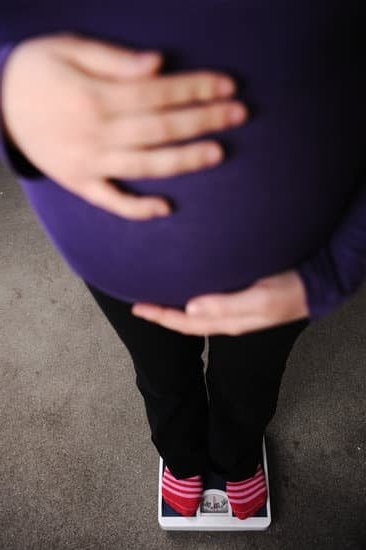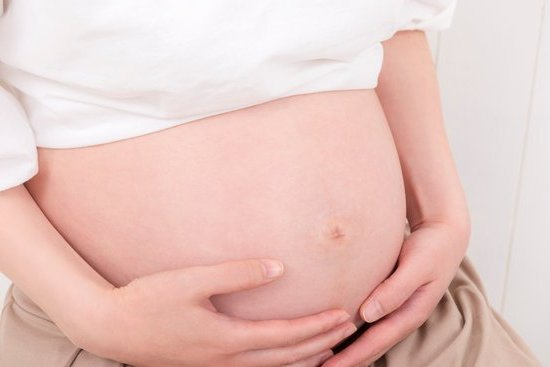Spotting during pregnancy can be a cause for concern for many expectant mothers. It can be a sign of various issues, including miscarriage, which can be a devastating experience. In this article, we will explore the causes of spotting during pregnancy, the signs and symptoms of miscarriage, and what to look for in miscarriage pictures. We will also discuss how to cope with the emotional impact of miscarriage and seek medical help if necessary.
Spotting during pregnancy is not uncommon and can occur for a variety of reasons. While it may not always indicate a serious problem, it is important to be aware of the potential signs of miscarriage and seek appropriate medical attention. Understanding the causes and warning signs of miscarriage can help expectant mothers take proactive steps to promote a healthy pregnancy and seek support in case of complications.
In this section, we will delve into the topic of spotting during pregnancy, providing valuable information on what causes it and how to recognize the signs and symptoms of miscarriage. Additionally, we will discuss the importance of being vigilant about seeking medical help when experiencing spotting during pregnancy. By understanding these crucial aspects, expectant mothers can better navigate their pregnancy journey and ensure they receive proper care if needed.
What Causes Spotting During Pregnancy
Spotting during pregnancy can be a cause of concern for many expectant mothers. It is important to understand what causes spotting during pregnancy in order to identify when it may be a sign of a more serious issue. There are several common causes of spotting during pregnancy, some of which are entirely normal and not harmful to the pregnancy, while others may require medical attention.
One common cause of spotting during pregnancy is implantation bleeding, which occurs when the fertilized egg attaches itself to the lining of the uterus. This typically happens around the time of the expected period and can result in light bleeding or spotting. Cervical changes can also cause spotting, particularly after sexual intercourse or a pelvic exam. Additionally, hormonal changes, such as fluctuations in estrogen and progesterone levels, can lead to light bleeding or spotting throughout the first trimester.
However, it is important to be aware that spotting during pregnancy can also be a sign of something more serious, such as a miscarriage or ectopic pregnancy. Miscarriage pictures of spotting during pregnancy can help expectant mothers identify when they need to seek medical help.
It’s crucial to pay attention to other signs and symptoms of miscarriage, including severe abdominal pain and cramping, back pain, and passing tissue from the vagina. If any of these symptoms occur along with spotting, seeking immediate medical assistance is vital.
Signs and Symptoms of Miscarriage
Spotting during pregnancy can be a source of great concern for expectant mothers, as it may be a sign of a potential miscarriage. Understanding the signs and symptoms of miscarriage is crucial for early detection and seeking appropriate medical care. Miscarriage pictures of spotting during pregnancy can help women recognize potential warning signs, allowing them to take timely action.
Recognizing Signs of Miscarriage
One of the most common signs of miscarriage is vaginal bleeding, which may vary from light spotting to heavy bleeding. Women may also experience cramping or abdominal pain, passing tissue or clot-like material from the vagina, and sudden decrease in pregnancy symptoms such as breast tenderness or nausea.
Understanding Symptoms of Miscarriage
Aside from vaginal bleeding and abdominal discomfort, other symptoms that may indicate a possible miscarriage include back pain, fluid discharge from the vagina, and a sudden feeling that something is not right with the pregnancy. It’s important to note that some women may experience these symptoms without ultimately having a miscarriage, but it’s essential to seek medical attention if any concerning signs or symptoms arise.
Consulting Healthcare Providers
If a woman experiences any of these symptoms or has concerns about spotting during her pregnancy, it is crucial to consult with her healthcare provider promptly. Seeking medical guidance and support can help confirm whether there is a risk of miscarriage and determine the appropriate steps for managing the situation. Additionally, healthcare professionals can provide emotional support and information on coping with the potential emotional impact of miscarriage.
Miscarriage Pictures
During pregnancy, the sight of any spotting can be alarming for expectant mothers. This is particularly true for those who have experienced a previous miscarriage or are at high risk for one. It’s important to differentiate between normal spotting and signs of a potential miscarriage. In this section, we’ll explore what miscarriage pictures look like, what to look out for, and when to seek medical assistance.
What to Look for in Miscarriage Pictures
Miscarriages can present differently for every woman, but there are some common signs to be aware of. One of the most telling signs of a potential miscarriage is heavy bleeding that may be accompanied by severe cramping or abdominal pain.
Additionally, passing clots or tissue from the vagina could also indicate a possible miscarriage. It’s important to note that not all cases of spotting during pregnancy lead to miscarriage, but being aware of these signs can help expectant mothers seek medical attention if needed.
If you experience any of the previously mentioned symptoms or notice any concerning changes in your pregnancy, it’s essential to seek immediate medical attention. Your healthcare provider will be able to conduct an examination and provide necessary testing to determine the cause of the spotting or bleeding. Remember, it’s always better to err on the side of caution and consult with a medical professional, even if it turns out to be nothing serious.
| Signs | Symptoms |
|---|---|
| Heavy bleeding | Severe cramping or abdominal pain |
| Passing clots or tissue | Spotting during pregnancy |
Coping With the Emotional Impact of Miscarriage
Experiencing a miscarriage can be a devastating and emotional journey for many women and their partners. Coping with the emotional impact of miscarriage is an important part of the healing process, and seeking support from loved ones or professional help can make a significant difference in navigating this difficult time.
Processing Grief and Loss
Following a miscarriage, it is natural to experience feelings of grief, sadness, anger, guilt, and even depression. It is crucial for individuals to give themselves permission to grieve and process their emotions. Talking to a trusted friend, partner, or counselor can provide an outlet for these emotions, as well as offer validation and understanding.
Connecting With Support Networks
Finding comfort in the company of supportive friends and family members who have experienced similar losses can be incredibly helpful. There are also support groups both online and in-person that provide a safe space for individuals to share their experiences and receive empathy from others who have gone through similar challenges.
Seeking Professional Help
For some individuals, the emotional impact of miscarriage may become overwhelming. In such cases, seeking out the expertise of a therapist or counselor can offer valuable tools for coping with grief and loss. These professionals are equipped to provide guidance on managing emotions, processing trauma, and finding healthy ways to navigate through the mourning process.
By acknowledging the emotional toll of miscarriage and seeking appropriate avenues of support, individuals can embark on a journey towards healing and find comfort in knowing they are not alone in their experiences.
Seeking Medical Help for Spotting During Pregnancy
Spotting or light bleeding during pregnancy can be alarming, and it is important to seek medical help if you experience this symptom. While some cases of spotting may not necessarily indicate a serious issue, it is always best to consult with a healthcare professional to ensure the health and safety of both the mother and the baby. Here are some steps to take when seeking medical help for spotting during pregnancy:
- Consult your obstetrician or midwife: Schedule an appointment with your healthcare provider as soon as possible to discuss any concerns about spotting or bleeding during pregnancy.
- Undergo a physical examination: Your healthcare provider may perform a physical exam, including a pelvic exam, to assess the source and severity of the spotting.
- Diagnostic tests: Depending on your symptoms and medical history, your healthcare provider may recommend diagnostic tests such as an ultrasound or blood work to evaluate the health of the pregnancy.
It is crucial not to ignore any signs of miscarriage or complications during pregnancy, as early detection and intervention can make a significant difference in the outcome. If you experience heavy bleeding, severe abdominal pain, dizziness, or fainting along with spotting, seek immediate medical attention.
Seeking prompt medical help can provide reassurance, diagnosis, and appropriate management for any underlying issues that may be causing spotting during pregnancy. Remember that your healthcare provider is there to support you through any concerns or challenges you may face during this delicate time.
Check for warning signs such as:
- Severe cramping or abdominal pain
- Heavy bleeding similar to a menstrual period
- Fever or chills
Preventing Miscarriage and Promoting Healthy Pregnancy
The thought of experiencing a miscarriage can be scary for any woman. While not all miscarriages can be prevented, there are steps that can be taken to promote a healthy pregnancy and reduce the risk of miscarriage. Here are some ways to help prevent miscarriage and support a healthy pregnancy:
- Get regular prenatal care: Attending regular prenatal check-ups with your healthcare provider is essential for monitoring the progress of your pregnancy and addressing any potential issues early on.
- Maintain a healthy lifestyle: Eating a balanced diet, staying physically active, avoiding harmful substances like tobacco and excessive alcohol, and managing stress can all contribute to a healthier pregnancy.
- Educate yourself about warning signs: Knowing the signs and symptoms of miscarriage, such as heavy bleeding, severe abdominal pain, and the passing of tissue from the vagina, can help you identify potential problems and seek medical help promptly.
In addition to these preventive measures, it’s important to remember that some miscarriages occur due to chromosomal abnormalities in the developing fetus, which is beyond anyone’s control. However, taking proactive steps to promote a healthy pregnancy can still make a difference in ensuring the best possible outcome.
While there are no guarantees when it comes to preventing miscarriage, following these recommendations can help support your overall health as well as the health of your baby during pregnancy. It’s also important to seek emotional support from loved ones or counseling if you have experienced a miscarriage before or are feeling anxious about the possibility of one occurring.
Remember that every pregnancy is unique, and finding ways to stay positive and hopeful can make a significant impact on your overall well-being during this time.
Conclusion
In conclusion, experiencing a miscarriage can be a devastating and emotionally challenging event for anyone. It’s important to remember that you are not alone in this experience. Seeking out support from loved ones, support groups, or mental health professionals can help you navigate the difficult emotions and find hope for the future.
While encountering miscarriage pictures of spotting during pregnancy may be distressing, it’s crucial to understand that every individual’s experience with miscarriage is unique. What may have occurred in one case does not necessarily indicate your own outcome. It’s essential to seek medical assistance if you notice any signs or symptoms of miscarriage, such as heavy bleeding, severe cramping, or passing of tissue.
Finding ways to cope with the emotional impact of miscarriage is an ongoing process. Remember to be patient with yourself and allow yourself time to grieve. It’s also important to prioritize self-care and seek out professional help if needed. By taking care of your emotional well-being, you can begin to heal and eventually find hope for a healthy pregnancy in the future.
Frequently Asked Questions
What Does Miscarriage Spotting Look Like?
Miscarriage spotting can vary in appearance, but it is often light pink or brown in color. It may also be accompanied by mild cramping and tissue passing. It’s important to consult a healthcare professional if you experience this.
When Should I Go to the ER for Spotting During Pregnancy?
If you are pregnant and experiencing spotting that is heavy, bright red, and accompanied by severe abdominal pain or dizziness, it’s crucial to seek medical attention immediately. These symptoms could indicate a potential miscarriage or other serious complications that require immediate medical care.
How Can You Tell the Difference Between a Miscarriage and Bleeding?
Distinguishing between a miscarriage and regular bleeding during pregnancy can be challenging. However, key indicators of a potential miscarriage include heavy bleeding, severe abdominal cramps, passing tissue or clots, and a sudden decrease in pregnancy symptoms. If you experience any of these symptoms, it’s essential to seek medical guidance for an accurate diagnosis.

Welcome to my fertility blog. This is a space where I will be sharing my experiences as I navigate through the world of fertility treatments, as well as provide information and resources about fertility and pregnancy.





